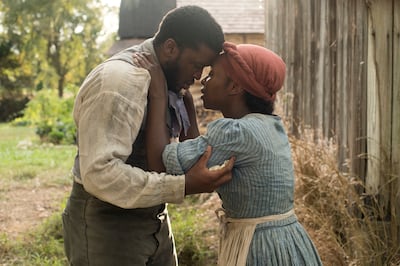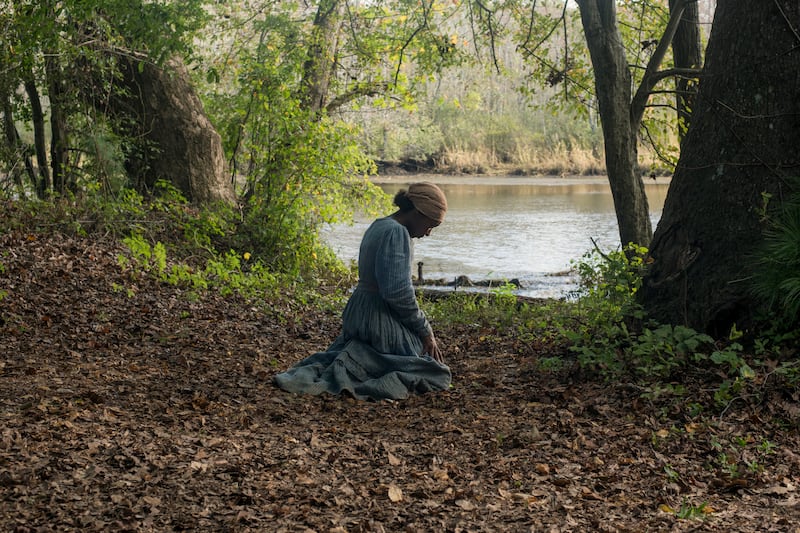“HARRIET” — 3 stars — Cynthia Erivo, Leslie Odom Jr., Janelle Monae, Joe Alwyn; PG-13 (thematic content throughout, violent material and language including racial epithets); in general release; running time: 125 minutes
SALT LAKE CITY — “Harriet” isn’t the most groundbreaking civil rights biopic, but it is a worthy tribute to one of American history’s most celebrated women.
Kasi Lemmons’ “Harriet” tells the story of Harriet Tubman, who helped free numerous slaves before and during the Civil War via the Underground Railroad after escaping captivity herself.
Despite Tubman’s legendary status, this is the first feature film solely about her. “Harriet” opens with the protagonist — who went by the name Minty during her slave days — in a difficult predicament. She’s married to a freed slave named John (Zackary Momoh), but she and her family are still the property of a Maryland slaveowner named Edward Brodess (Mike Marunde). Legally, Minty (Cynthia Ervio) and Co. should have been freed years ago, but even after Brodess dies unexpectedly, his son Gideon (Joe Alwyn) makes it clear that Minty will always be someone’s property.
In desperation, Minty flees into the night after a quick farewell to her father Ben (Clarke Peters). Though John intends to run with her, Minty leaves him behind, fearing capture would put him back into the slave trade. She eventually makes it to Pennsylvania, where she contacts an abolitionist named William Still (Leslie Odom Jr.).

Minty is a portrait of determination. She assumes the new name of Harriet Tubman, but she is unable to abide the cautious deliberation of William and his “angels,” who have been working to free runaway slaves for some time. When Harriet asks him to send her back to Maryland after her family, he refuses, and she goes anyway.
The trip back — marked both by harrowing trial and the display of her unique spiritual gifts of discernment, which Lemmons plays up as a driving force in Harriet’s life — helps Harriet to realize her true calling, and as the film plays out, we see her rise into legend as a successful conductor on the Underground Railroad.
As a nuts and bolts portrait of Tubman, “Harriet” gets the job done in generally accurate fashion and features enough emotional moments to give Lemmons’ film some gravity — like a tender moment Minty shares with a kindred spirit named Marie (Janelle Monae) after a brutal encounter with Gideon. The movie lingers in the dangerous no-man’s land between slave states and free states, and as we see historical events play out — such as the passage of the Fugitive Slave Act of 1850 — it becomes clear that even in a free state, African Americans were anything but safe.
At the same time, a handful of shortcomings keep “Harriet” from truly elevating to the level of celebrated civil rights biopic. This is the first feature film about Tubman, but her original 100-mile journey to freedom goes by quickly, and as with her subsequent journeys on the Underground Railroad, the depiction doesn’t quite capture the danger and intensity of the effort.

The limited narrative is echoed by the soundtrack which, strangely enough, is distracting and feels more appropriate for a made-for-TV movie. Erivo’s performance is sincere, like the film in general, but it doesn’t hit the depth that would usually attend a strong character arc.
“Harriet” is a powerful story about a powerful person in American history, but it still feels like it belongs on the second tier of biopics and needs a bit more meat to make the tribute truly resonate.
Rating explained: “Harriet” is rated PG-13 for adult themes, racial epithets and some scenes of intense violence.

